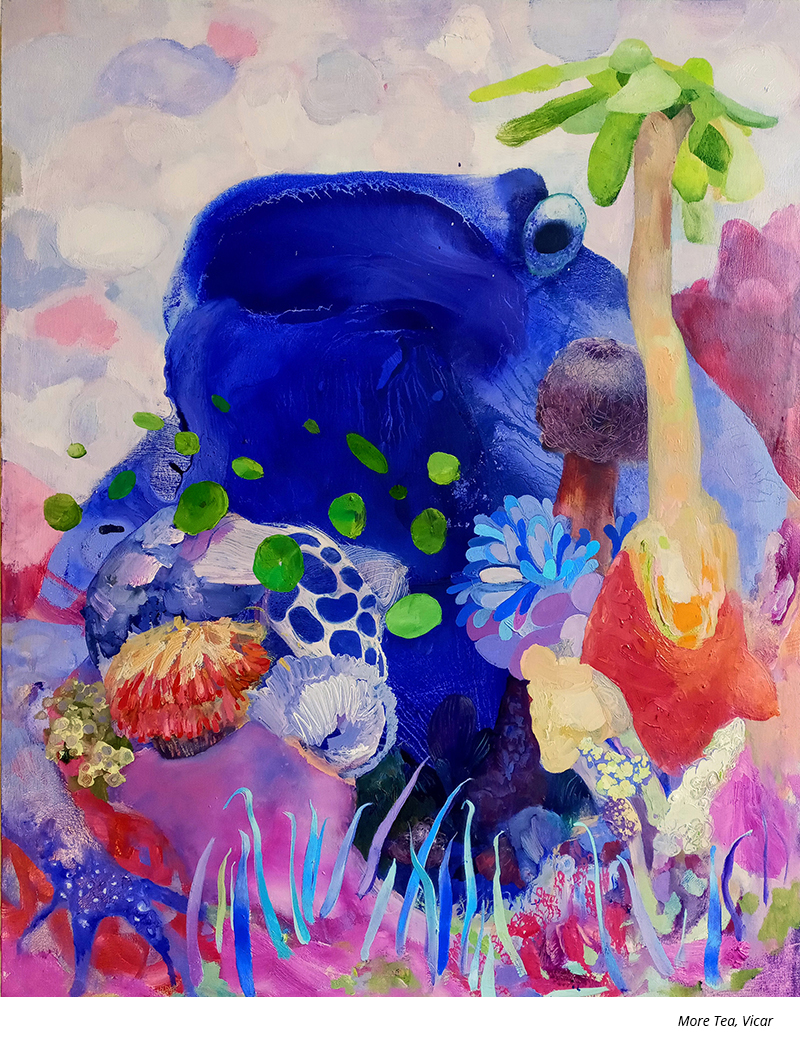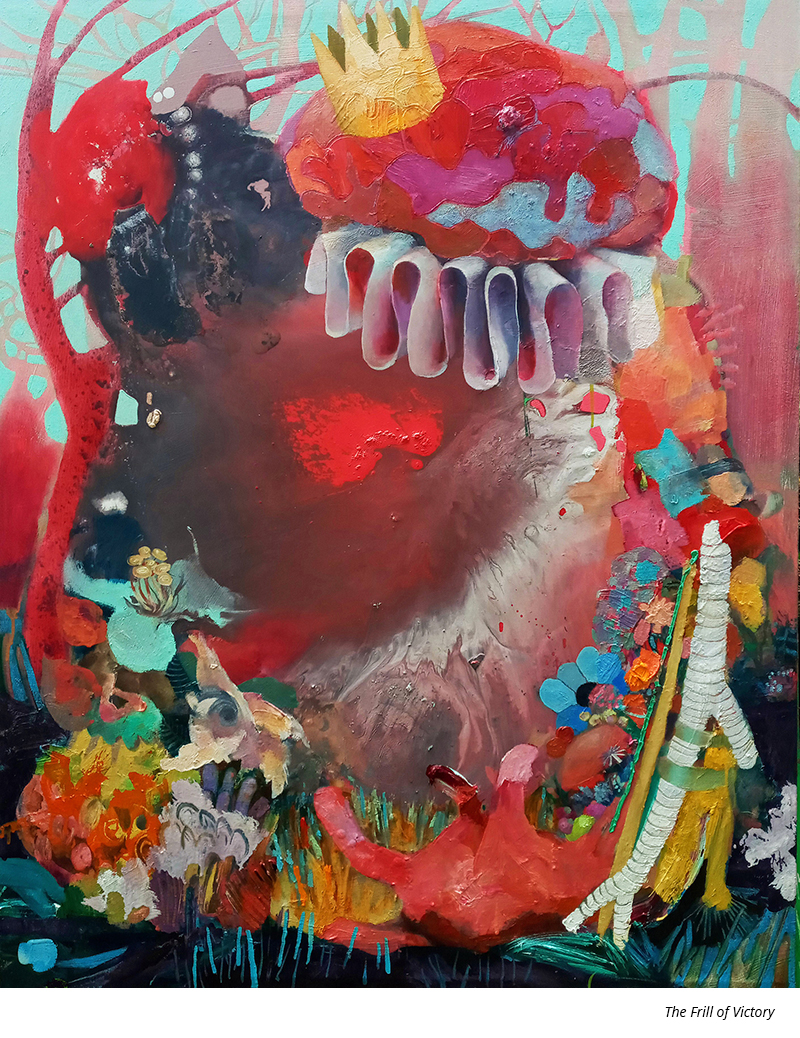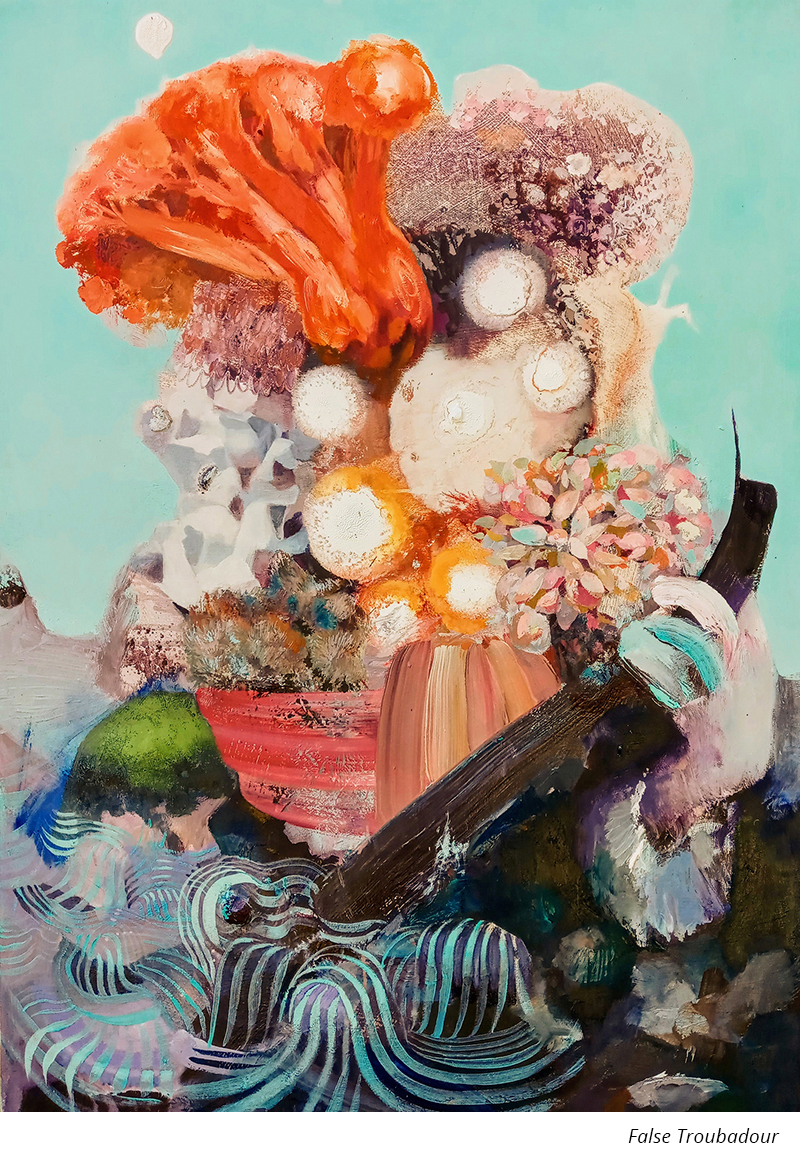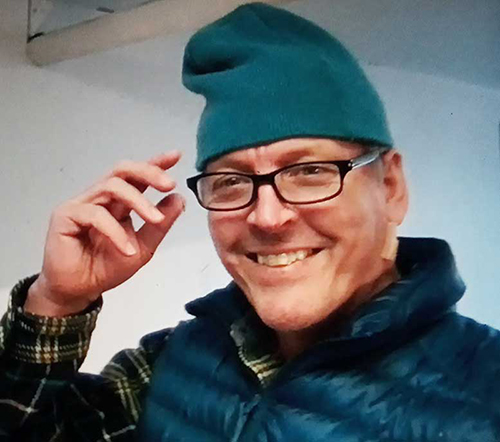
What artists or movements have had an impact on you?
When I was younger, I was very into The Bay Area Figurative movement, but as time has gone on, I find myself more and more connected to work that has a strong narrative element to it. I love the Symbolists, I love Baroque painting. I can certainly be wowed by the work that is purely formal or lies outside of these movements, but I do find myself connecting more emotionally with work that contains a strong narrative or that presents characters who somehow strike my imagination. Similarly, the landscape painting that I really respond to tends to either be very idiosyncratic or dramatic in its expression. I'm a huge fan of Charles Burchfield's weird squiggly flora, the emotional resonance of Marsden Hartley, and the staged romanticism of Caspar David Friedrich. A few of the contemporary painters whose work I am always excited to see are Cecily Brown, Dana Schutz, Lisa Yuskavage, and Inka Essenhigh; all women, which probably means something...
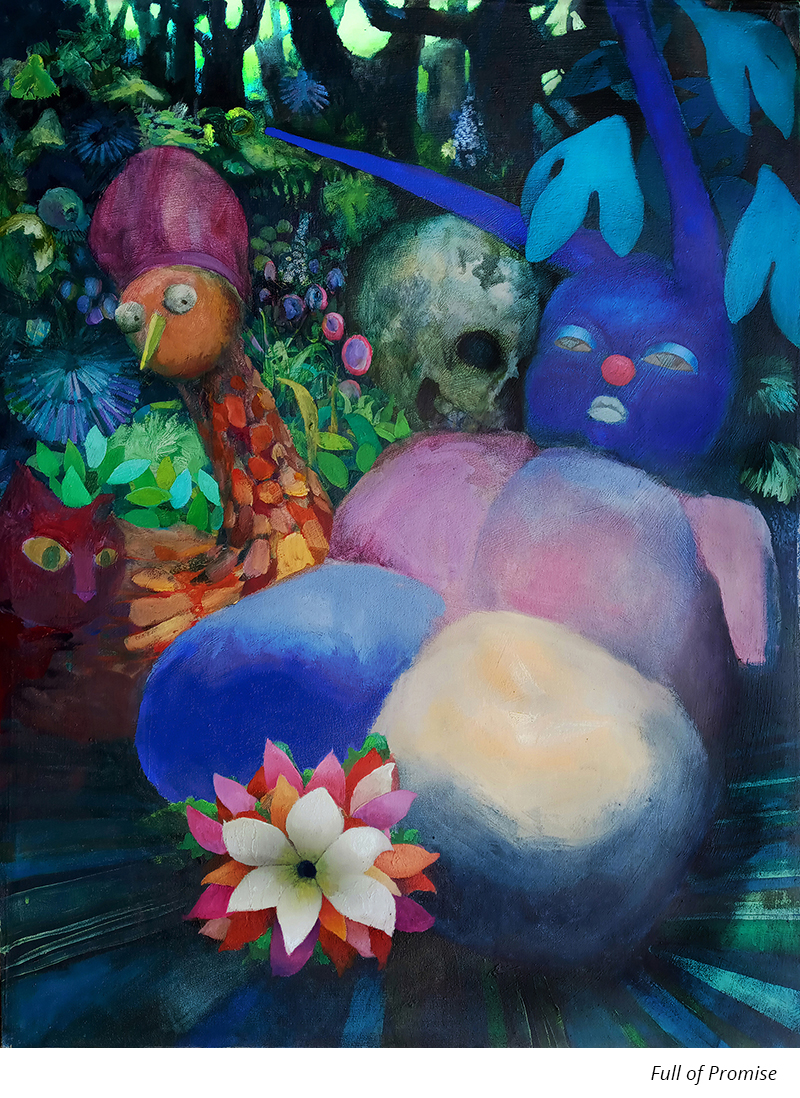
I do find myself connecting more emotionally with work that contains a strong narrative or that presents characters who somehow strike my imagination
What themes does your work involve?
To characterize the themes of my work, I would say they are the historically grand themes: life and death, love and longing, failure, power, shame. I know it sounds very grandiose, but really these themes are with us in our daily lives, just usually in more mundane ways. The world that we live in and its contemporary political and cultural discourse often find their way into the work. Living in America, the political/cultural discourse has been a roller coaster the last few years (possibly it always has been) and this can be fuel for some good art making, whether it is the infringement of personal liberties or the debauchery of a demagogue.
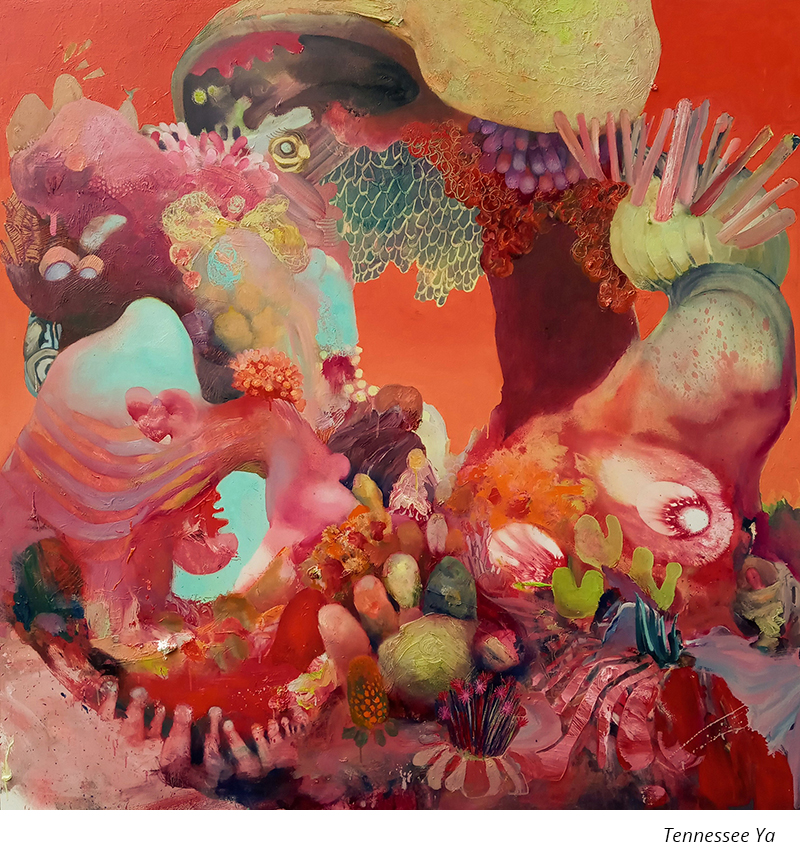
Once I start seeing something in the pour or the wiped-away marks that I have never seen before and is intriguing to me, I pursue it - articulating and fleshing out, so to speak, so that there is a semblance of order amidst the flurry of marks
Describe your creative process.
I will often start a painting either through a pour or through working reductively (or sometimes a combination of the two), and I do this to avoid making trite, clichéd imagery. It's so easy to just rehash the same old images that people have been looking at forever, and the problem is when that happens, people stop looking because they think they already know what these things look like. So, I really try to avoid clichés and doing a pour and working reductively without a plan relinquishes some of that conscious control that leads to stale predictability. Once I start seeing something in the pour or the wiped-away marks that I have never seen before and is intriguing to me, I pursue it - articulating and fleshing out, so to speak, so that there is a semblance of order amidst the flurry of marks. Then the rest of the painting process is really me trying to hold on to a certain level of openness and ambiguity that allows the viewer to enter into the work, whilst still giving enough conciseness and clarity so that the work is saying what I want it to say. The whole process I equate to a conversation between myself and the painting.
